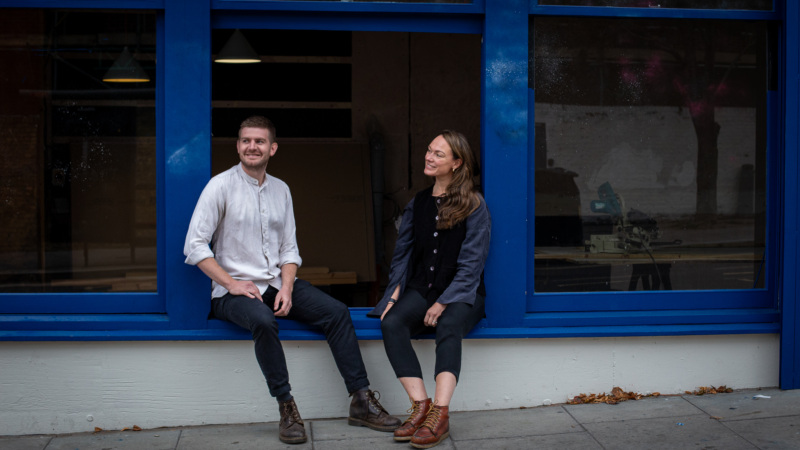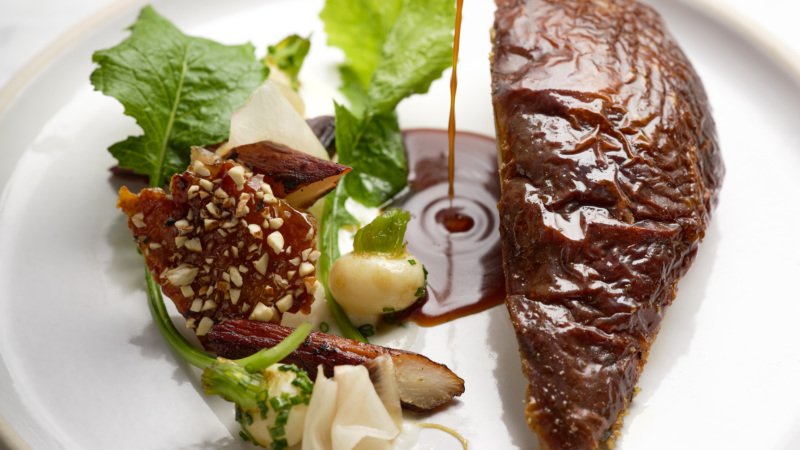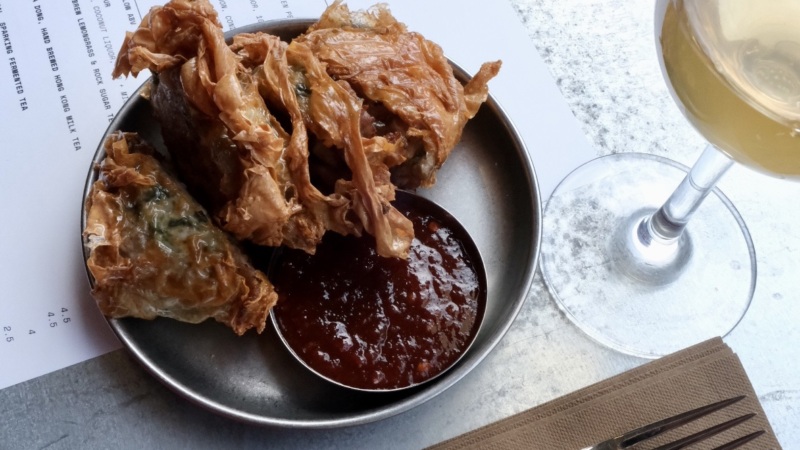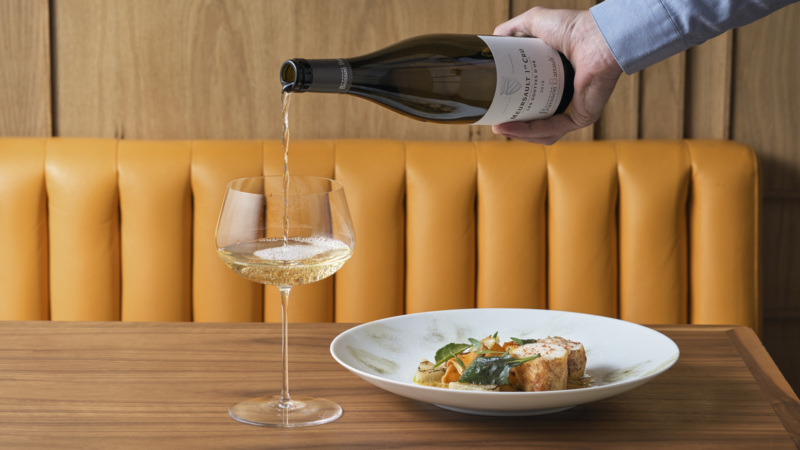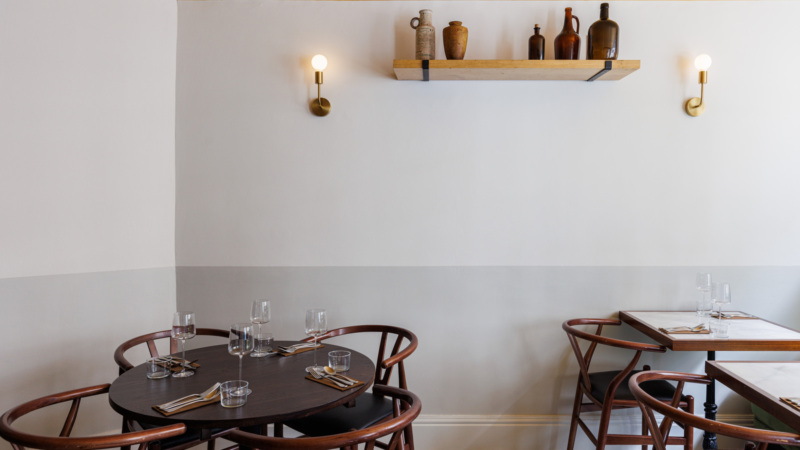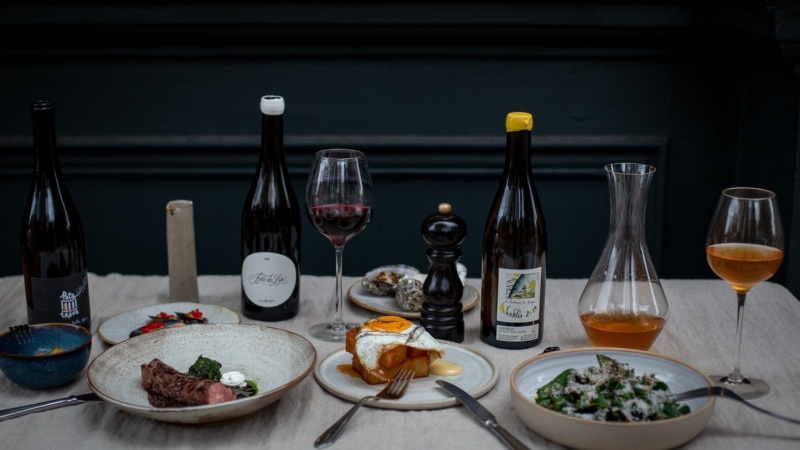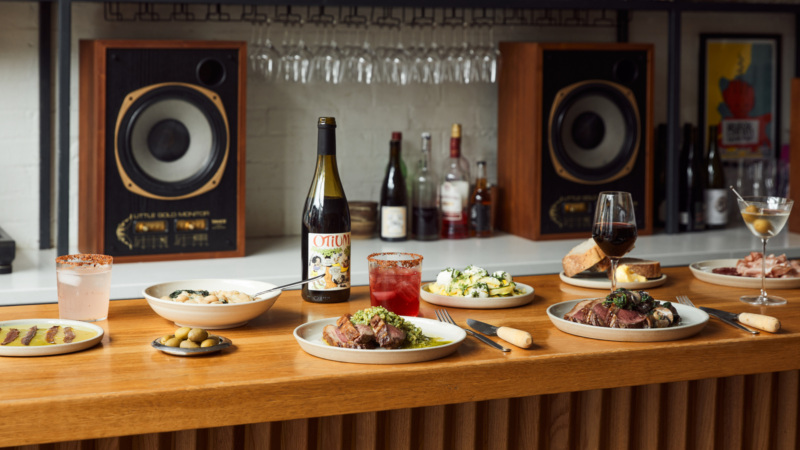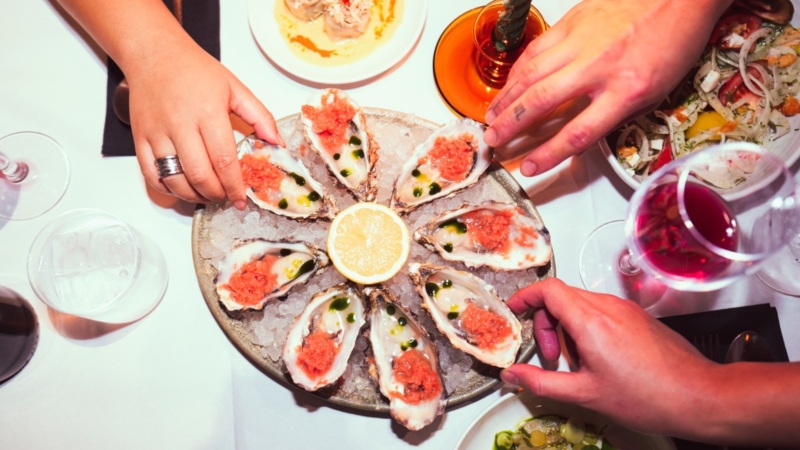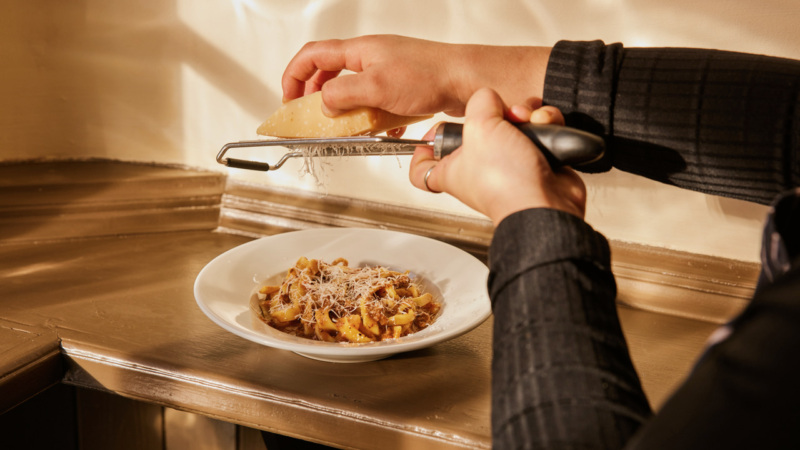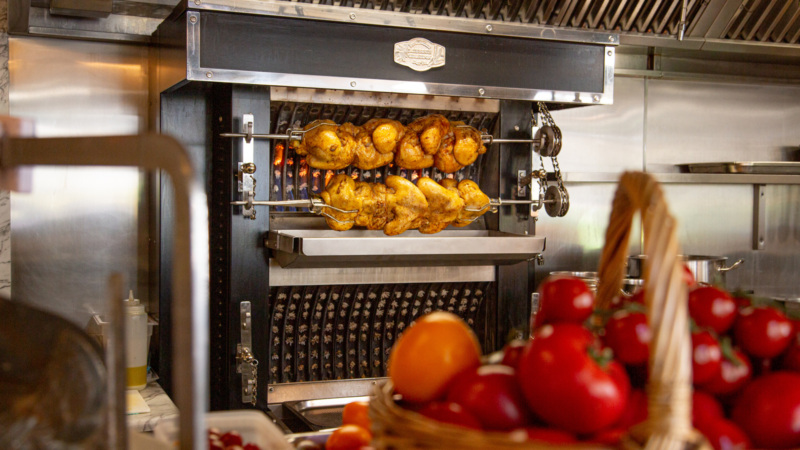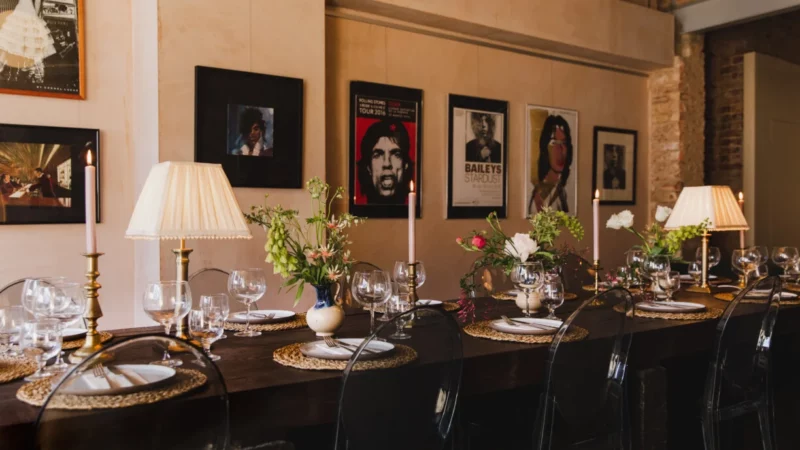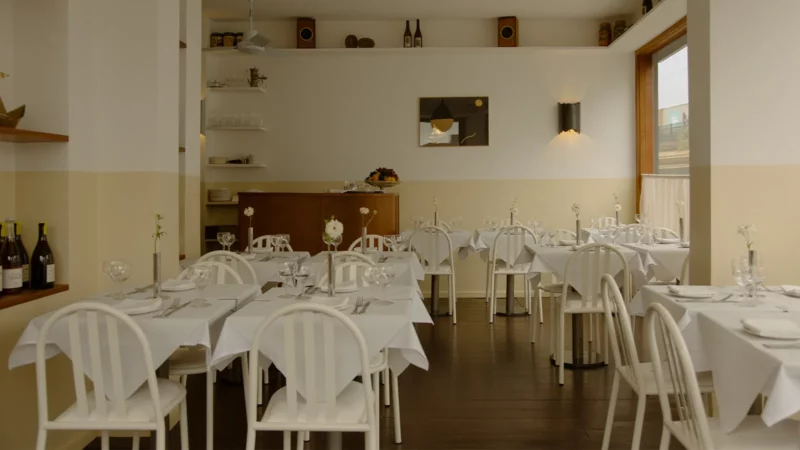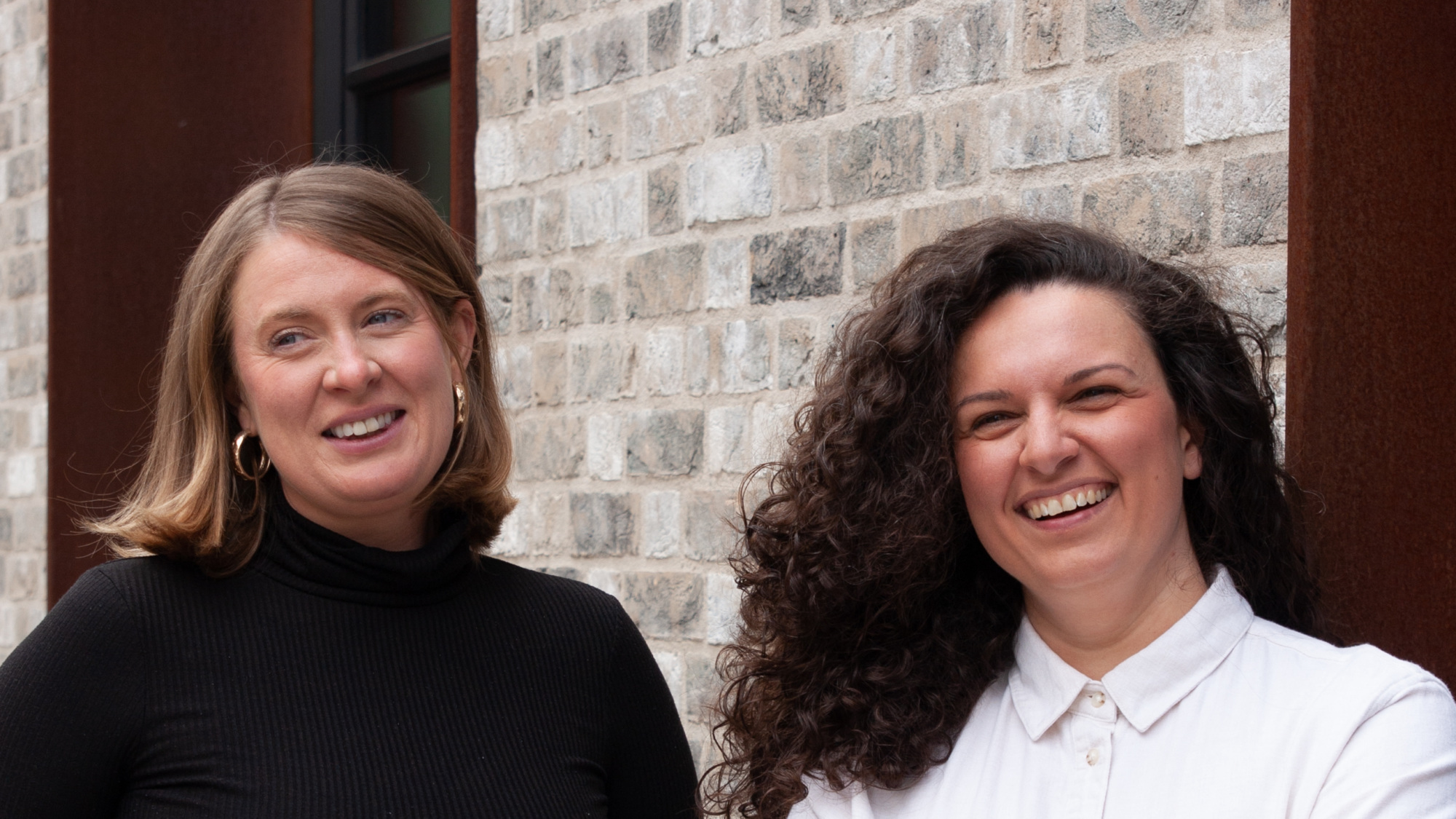
Oklava’s Founders On Why The Restaurant Industry Needs More Action – And Less Lip Service
For the London event of The Women of Food dinner series on June 28, Selin Kiazim and Laura Christie of Oklava in Shoreditch were invited to create a one-off four-course menu inspired by the women who inspire them. Is now an opportune moment, then, to talk about how Kiazim and Christie in turn inspire us? Of course, we know Kiazim to be an outstanding chef and Oklava to be one seriously brilliant restaurant, but there’s much more that could be said about the sheer radness of what Kiazim and Christie do, both together and apart.
Christie, for her part, may be co-owner and sommelier of a London restaurant but her home is in Cheshire, where she runs neighbourhood spot Linden Stores. Kiazim, meanwhile, now divides her time between London and Amsterdam for reasons of personal and creative fulfilment. Together, in the five years since they opened Oklava, they’ve advanced a vision of an inclusive, sustainable workplace, formalising a ‘safe home’ policy for staff and scrapping service charge. That two women would set about establishing a business model that’s sustainable both for themselves and their staff shouldn’t be a talking point but, in hospitality, it is.
Here, Kiazim and Christie discuss their vision of a more equitable industry and share what they’ve got lined up for their special dinner on June 28th.
What’s on the menu for The Women of Food dinner series on June 28?
Selin: “It was great to have the brief to create dishes that you’ve never made before, making connections with strong females in your life, so I’m really excited to cook the menu. The first couple of courses are inspired by things my grandmother and my mum used to make which has always inspired me certainly in the early days of Oklava.
For the first course we’re doing a pilavuna, a halloumi cheese pastry. My grandmother used to make them every time she lit her clay oven outside. You’d have them as a snack, for breakfast, or just whenever with a cup of tea. It’s something no one would ever think of turning into some kind of fancy starter! We’re doing it with a whey broth and a piece of fried halloumi to really highlight Cyprus’s national cheese.
The main and dessert are focused on suppliers. We’re going to be using some Sutton Hoo chicken [reared by Belinda Nash in Suffolk] alongside Flourish produce. Calixta [Killander, Flourish Produce founder] grows everything organically and has her two horses doing the hard work which is kind of amazing. For the dessert, we’re going to build a dessert around a Turkish coffee ice cream. Özerlat is a family business. Iley Özerlat has brought the business from Cyprus here to London and has worked really hard to build the brand and shout about it and about Turkish coffee.”
Laura: “We’ve got wines to go with each of the courses; a white, a skin contact, a red and a dessert wine. The first three are from female winemakers; the last one is from a female importer, who imports a lot of wine from Armenia. People ask why are these days necessary? Why is International Women’s Day necessary? Why is Pride necessary? The reality is if it was a level playing field by now, they wouldn’t be, would they? We’re shining a bit of light not just on female chef but all the other people who are involved in the industry – people like me who do the behind-the-scenes stuff, winemakers, food producers, all those cogs of the industry.”
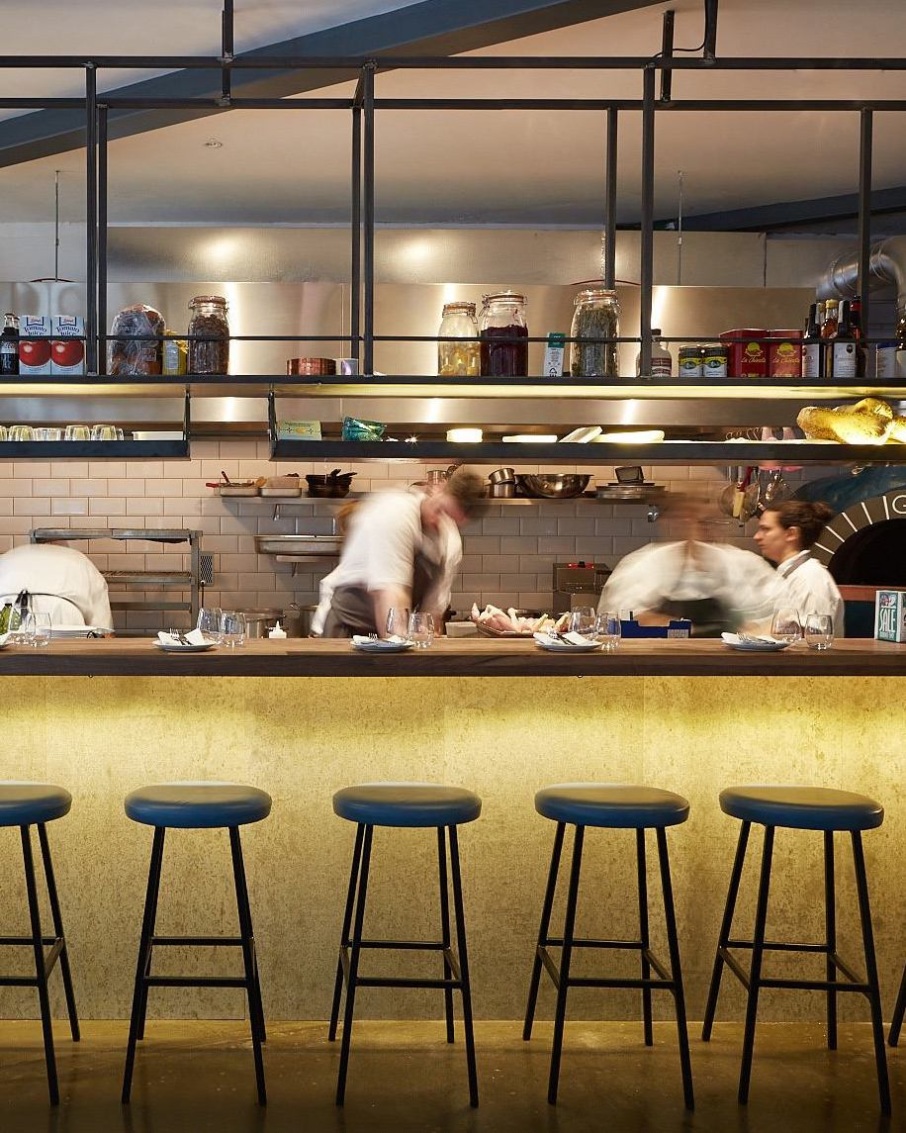
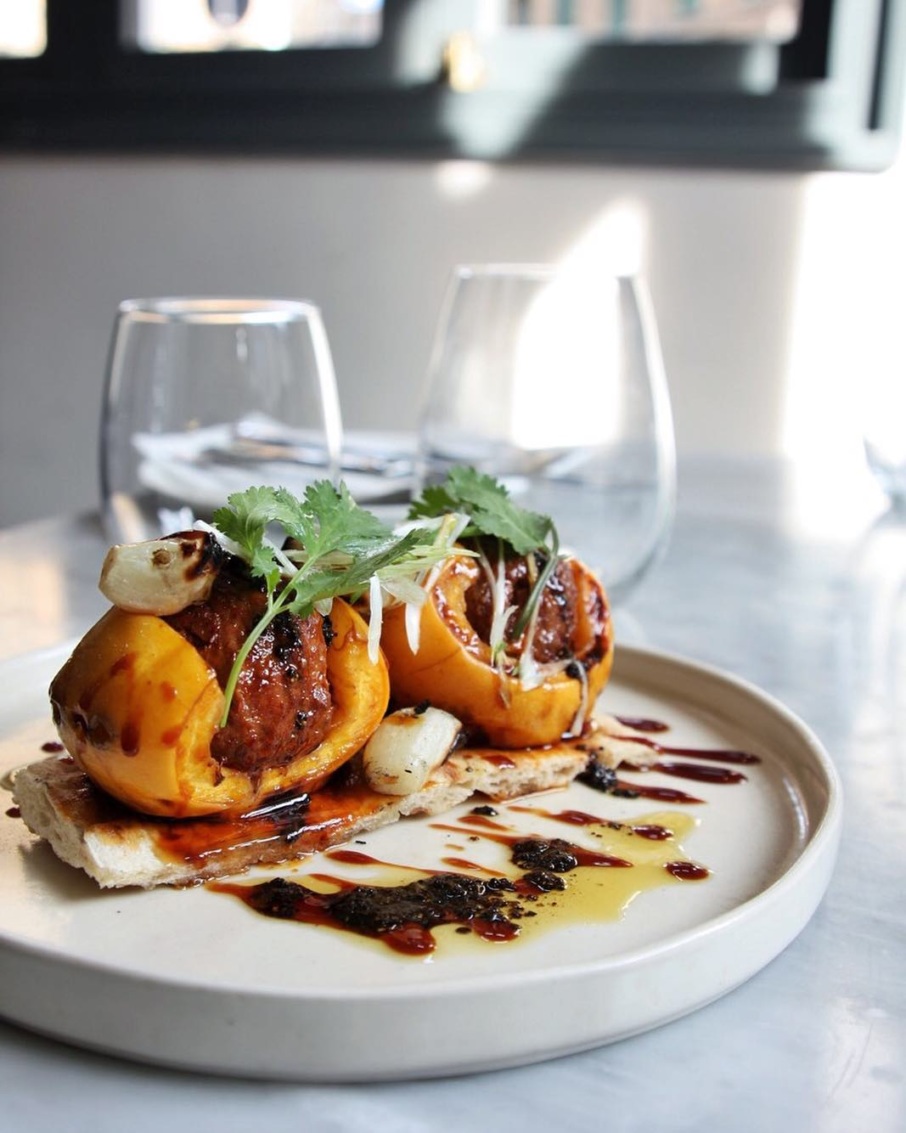
What do you do differently at Oklava to make it an inclusive, welcoming space for women in the industry?
Laura: “There are things we were conscious of from the start like a standard of behaviour that is expected, not just of our staff but of contractors, delivery drivers, of guests. If you’re not going to meet those standards, we will have the awkward conversation with you. It’s also silly things like the music the staff play in the mornings or when they’re closing down. I say to them, ‘Would you play it if your grandma was here?’ If you wouldn’t, then take it off.
It’s an ongoing maintenance of a standard. You can’t just write it in a handbook and expect everyone to stick to it. Another thing that has developed with us over time – I was pregnant when we’d been open a few months – is thoughts around childcare, a burden that falls far heavier on women that it does on men, and around pregnancy itself as restaurant work is very physical.”
Selin: “Hospitality in particular has this different culture, the kitchen banter, that people see as the standard and just the way it is. We make a real stand and say it doesn’t have to be like that. We’re not going to allow it to be like that.”
Is there anyone in particular who has inspired you?
Selin: “My old boss Peter Gordon at The Providores was a huge inspiration in many ways, but one of the biggest things I took from working with him was being kind to people. In my eyes, he broke the mould of how you should be in a kitchen, how you interact. He made sure front of house and back of house got on harmoniously. All of that filters through to the things we do at Oklava. It’s what inspired us and has driven us to push that even further.”
When I started out, Gordon Ramsay was on TV. I don’t watch but I hear from my chefs that he’s still shouting and screaming on the TV. It was entertainment but looking back on it, I thought ‘is that what it’s like?’ When I met Peter Gordon – I remember this so distinctly – he came across almost like the opposite of a chef. He was super-friendly, like a normal human! Chefs are so often like a caricature of themselves; what is this bravado, this need to be hard? Everyone who worked for Peter was like him because if someone didn’t have the right attitude, then they weren’t working at The Providores.”
“They should do some very basic investigation into who they’re putting on these pedestals and they obviously aren’t.” – Laura Christie
You have been open about prioritising your work-life balance. Can you speak to that decision?
Selin: “As a young chef, I always wanted to work abroad in Barcelona or somewhere but I always got these opportunities to climb the ladder – which I’m very grateful for! – and once I was up the ladder, I thought let me carry on here. Then I started thinking about doing my own restaurant and it all kind of snowballed. Before I knew it, there I was five years into having Oklava, still thinking I would really like to do that.
There are certain standards in hospitality: that you are always behind the stove, you are always at your restaurant. To a certain extent that’s important in the first few years as you build your business to where it needs to be, but I think it’s testament to what we have built with Oklava that I can be away for three, four weeks, and when I come back, the wheels are turning. There’s always going to be small things but it’s a case of having to let go and realising those things will happen whether I’m there or not. It’s good to put faith in the people we have to run the kitchen without me and I get to be in a very creative role for the restaurant. It’s not always easy but it does work.”
What would you like to see change in the industry?
Laura: “Less lip service and more actual accountability and action. The number of chefs you see who lead a mental health campaign who you personally have watched destroy someone’s entire self-esteem is just ridiculous. There need to be some changes to make it a more long-term and viable career for women. A big thing is the need to address working hours for parents.
I’d also like to see more representation in the media of women and not just good-looking women. Chefs are the big media attraction but I would really like to see more of the other side of the business represented. The platform TV shows give you is just so huge; I think they should do some very basic investigation into who they’re putting on these pedestals and they obviously aren’t.”
Selin: “I’d like to see the industry taken more seriously as a profession. It’s up to the industry to paint the picture and follow through with it as a career for people to get into. I hear about places that advertise great pay and a four-day week but that four-day week is actually 17 hours a day. That’s not the direction we need to be going in.”
Throughout the month of June, Resy is celebrating the Women of Food in London and around the world, with stories devoted to the women who power the hospitality industry.
Join Selin Kiazim and Laura Christie at Oklava on June 28th to celebrate The Women of Food, Resy’s global dinner series and tribute to the women who make restaurants special. More info here.
Hilary Armstrong is a London-based journalist and editor. Follow her on Instagram and Twitter. Follow Resy, too.


